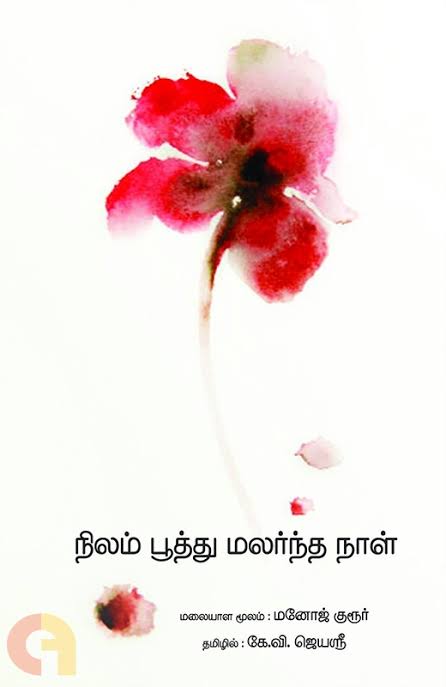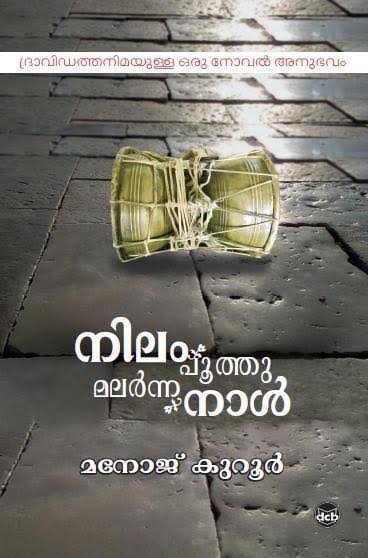
- Home
- India
- World
- Premium
- THE FEDERAL SPECIAL
- Analysis
- States
- Perspective
- Videos
- Sports
- Education
- Entertainment
- Elections
- Features
- Health
- Business
- Series
- In memoriam: Sheikh Mujibur Rahman
- Bishnoi's Men
- NEET TANGLE
- Economy Series
- Earth Day
- Kashmir’s Frozen Turbulence
- India@75
- The legend of Ramjanmabhoomi
- Liberalisation@30
- How to tame a dragon
- Celebrating biodiversity
- Farm Matters
- 50 days of solitude
- Bringing Migrants Home
- Budget 2020
- Jharkhand Votes
- The Federal Investigates
- The Federal Impact
- Vanishing Sand
- Gandhi @ 150
- Andhra Today
- Field report
- Operation Gulmarg
- Pandemic @1 Mn in India
- The Federal Year-End
- The Zero Year
- Science
- Brand studio
- Newsletter
- Elections 2024
- Events
- Home
- IndiaIndia
- World
- Analysis
- StatesStates
- PerspectivePerspective
- VideosVideos
- Sports
- Education
- Entertainment
- ElectionsElections
- Features
- Health
- BusinessBusiness
- Premium
- Loading...
Premium - Events

Gained in translation: A Tamil novel ‘written’ in Malayalam

Can a Tamil novel be written in Malayalam? Sounds baffling but seems possible, if a great translator can give the readers a work beyond the language in which it was written and yet retain the original essence. “A translation should always reflect the spirit of the author’s original work and that should be the thumb rule of every translator,” says KV Jeyasri, a Tamil teacher-translator...
Can a Tamil novel be written in Malayalam? Sounds baffling but seems possible, if a great translator can give the readers a work beyond the language in which it was written and yet retain the original essence.
“A translation should always reflect the spirit of the author’s original work and that should be the thumb rule of every translator,” says KV Jeyasri, a Tamil teacher-translator from Tiruvannamalai. Jeyasri has won the Sahitya Akademi Award 2019 for her translation of the Malayalam novel Nilam Poothu Malarnna Naal (The day the land bloomed and blossomed) into Tamil as Nilam Poothu Malarntha Naal.
“Being a translator, the biggest responsibility and challenge is to retain the essence of the original work,” she says.
Interestingly, Jeyasri—born to parents who lived in Kerala’s Palakkad and later moved to Tiruvannamalai (in Tamil Nadu) for livelihood—did not have any formal education in Malayalam.
Yet Nilam Poothu Malarntha Naal is Jeyasri’s 12th translated work.
The novel was written by Malayalam author Manoj Kuroor, and the translated version by Jeyasri was published by Vamsi books.
A language handed down
“Although we speak Malayalam at home, I didn’t know how to read or write a single word in Malayalam until Class 4,” she says and credits her mother for teaching her and her sister (translator KV Shylaja) how to read and write the language.
“She [mother] dropped out of school at the age of 15 and got married. After marriage, she moved to Tiruvannamalai and never returned to Kerala. In spite of that, she never gave up or forgot her mother tongue,” Jeyasri tells The Federal.
When Jeyasri was in Class 10, she started reading magazines brought by relatives from Kerala visiting them in Tamil Nadu.
“Reading was our only recreation. We learnt Malayalam through the weeklies. When I was getting into college, I had a working knowledge of the language.”
During a forced break of three years after school due to financial constraints, Jeyasri immersed herself in the world of literature.
“It was in these three years that I read extensively. I completed reading almost all great writers in Tamil literature.”
Later, she joined the Tiruvannamalai Government Arts and Science College and studied Tamil literature.

“There, I studied ancient Tamil literature. But I was introduced to the Progressive Writers’ Association of Tamil Nadu (TNPWA) through writers like Bava Chelladurai (her brother-in-law, Shylaja’s husband) and came to know about modern writers like Prapanchan, Konangi and S Ramakrishnan. That helped me move from ancient to modern Tamil literature,” she explains.
A translating point
The turning point in her life came when she translated a Malayalam drama Thacholi Ambu into Tamil and it was published in her college magazine.
“It was received well. That opened my window to translation. After I got married (to Tamil writer Uthira Kumaran), we moved to Kerala for five years. There, I started translating some of the articles from Malayalam magazines for the Tamil media. After that we returned to Tiruvannamalai and I started working as a Tamil teacher,” she says.
Her big break came when she translated Paul Zacharia’s short stories. Titled Ithu Thaan En Peyar (This is my name) the collection had 12 of his stories.
She has mostly translated Paul Zacharia (nearly five collections of his short stories). Besides Zacharia, she has also translated the works of Santhosh Echikkanam, Shyamala Sasikumar, A Iyyappan and Shoukath.
It was noted Tamil writer Jeyamohan who introduced her to Manoj Kuroor’s Nilam Poothu Malarnna Naal and asked her to translate it. Born in a family of Chenda Melam artists, Professor Manoj Kuroor teaches Malayalam at the NSS Hindu College, Changanaserry. He won the Kerala Sahitya Akademi Award for his 2007 poetry collection Coma.
A page from Sangam age
“To be frank, I never felt that I was reading a Malayalam work when I first read the book. The author takes us to ancient Tamizhakam (Tamil Nadu) and its culture in a fine manner,” she says.
This historical novel talks about ancient Tamizhakam which was ruled by three dynasties — Chera, Chola and Pandya. Centuries before states were divided based on languages, the Chera kingdom was spread across the region what is now known as Kerala and Tamil Nadu.
Nilam Poothu Malarntha Naal traces the lives of ‘Paanars’ who followed a bardic tradition. Living a nomadic life, they would sing and dance wherever they go and entertain people. They used to travel from one country to another, sing songs in praise of the kings and would get handsomely rewarded by those kings, mostly in gold coins or land.
In the novel, one such bardic group leaves its drought-ravaged village and meets a great poet en route. It is he who advises them to go to another country instead of their initially planned destination, where a like-minded poet would help them to approach the king.
When they reach the place, a sudden harm befalls them. How they rid themselves of that curse is what the rest of the story is about.
The story is told through three characters — a father and his daughter and son. Well-known characters of the Sangam age such as poet Kapilar, chieftains Vel Paari, woman poet-saint Avvaiyar and a local deity Maasani Amman in Pollachi also make fleeting appearances in the story.

A nuanced affair
Even in the original work, the nuanced description of the ancient land of Tamils—quoting Purananooru (a compilation of 400 verses from Sangam era) besides other literature from the time—makes one wonder if the novel was actually written by a Malayali, and not a Tamil.
But then that is the beauty of this novel—a novel about ancient Tamil Nadu written by a Malayali and translated from Malayalam to Tamil by another Malayali.
Well-known Tamil writer Nanjil Nadan in his preface to the book, puts it more succinctly: “A Tamil novel written in Malayalam.”
It took Jeyasri six months to translate the book. “I would have lost out on a wonderful experience had I not taken up this work,” she says.
Malayalam vs Tamil
Jeyasri says that the literary scene (including translation work) in Malayalam is different from Tamil.
“In Kerala, they translate every major work from English. Besides, they translate from Bengali and Marathi too. But Tamil works have not been translated into Malayalam adequately. Whereas in Tamil Nadu, more than any other language, Malayalam works get translated the most,” Jeyasri notes.
Nilam Poothu Malarntha Naal has been included in some university curriculum in Kerala while the translated version is taught in colleges of Tamil Nadu. Within six months of its release, it became a bestseller and sold around 15,000 copies.
“People in Kerala read it more than the average Tamil reader. In the first edition itself, they printed 2,000 copies. Within six months, they came out with the second edition whereas here (Tamil Nadu), only 500–1,000 copies were printed. It normally takes years for a book to see the second edition here,” she laments.
“In Kerala universities, ancient Tamil literature is part of MA in Malayalam literature. With the Chera kingdom then spread over Kerala and Tamil Nadu, we both share the same kind of culture. Our languages are from the same family. So, the acrimony between the speakers of the two languages is unnecessary,” she says.
Breaking the glass ceiling
With more than eight awards for her translation works, Jeyasri is the fourth woman to receive this award for translation to Tamil in its 30-year history (the Akademi instituted an annual prize for translation only in 1989).
Jeyasri believes women translators like her are conspicuous with their presence in the male-dominated field of translation.
“I live in a joint family. So, to this day I haven’t been to the kitchen. But how many women can have that luxury? That is a major reason why there are fewer women translators than men,” Jeyasri says.
But the fact that women, she says, are quite intuitive and sensitive to things and people around them, translation comes somewhat naturally to them.
“What is translation but a shift between languages, cultures, and yet retaining the emotions. All this exemplifies women and their dogged perseverance, their ability to adapt to new situations and adjusting to new realities.”
